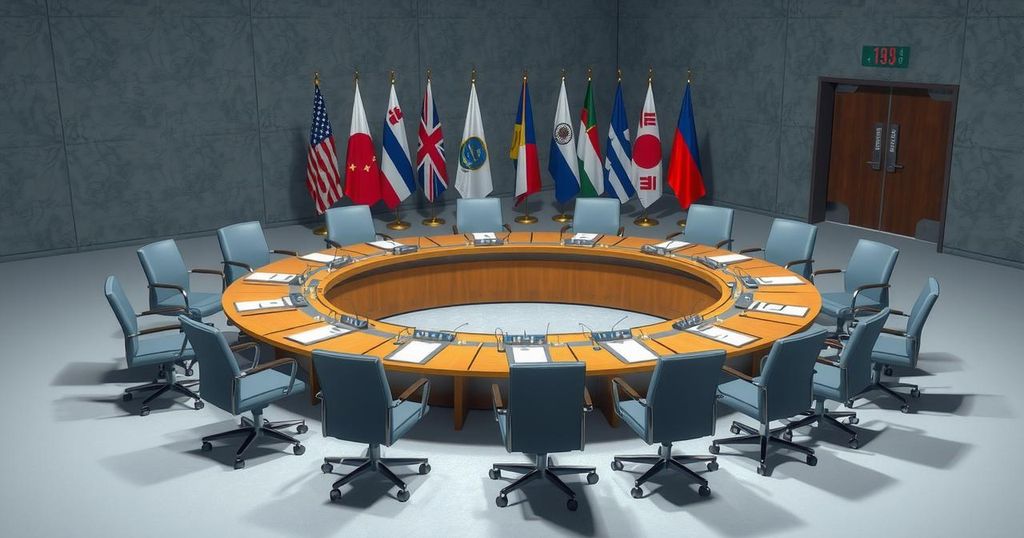The UN Security Council will convene to discuss Iran’s rise in uranium enrichment, with concerns from multiple nations over compliance with the IAEA. The UK, France, and Germany are considering invoking sanctions under the snapback mechanism due to an expiring resolution. Tensions escalate following a US ultimatum to Iran, while diplomatic negotiations and contrasting perspectives from Russia highlight the challenges in reaching an agreement.
The United Nations Security Council will meet privately on Wednesday to address Iran’s increasing uranium stockpile, which is enriched to near weapons-grade levels. This session was convened at the request of six member nations: France, Greece, Panama, South Korea, the United Kingdom, and the United States. Their main concern centers on Iran’s compliance with the International Atomic Energy Agency’s (IAEA) requirements to report on undeclared nuclear materials found at various sites within the country.
Western countries maintain that there is no valid civilian rationale for Iran’s high-level uranium enrichment, noting that no other nation has enriched uranium to such extents without pursuing nuclear weapons. In contrast, Iran claims its nuclear ambitions are solely for peaceful purposes.
The UK, France, and Germany have indicated that they are ready to invoke the ‘snapback’ mechanism, which would reinstate all international sanctions on Iran to prevent it from developing nuclear weapons. However, urgency ensues as the 2015 UN resolution that supports the Iran nuclear deal is due to expire on October 18 of this year. The snapback provision, part of the Joint Comprehensive Plan of Action (JCPOA), allows for the reimposition of sanctions if Iran does not fulfill its obligations.
Amid rising tensions, the US and its European allies sought the Security Council meeting. Reports suggest that President Donald Trump has communicated with Iran’s Supreme Leader, Ali Khamenei, presenting two options: either cease Iran’s nuclear operations and military activities or face military action against its nuclear infrastructure. Khamenei responded firmly, stating that Iran would not negotiate under pressure, particularly as Western demands extend to its regional influence and missile programs.
In a contrasting note, Russia remarked that Iran might be willing to limit its nuclear efforts in return for sanction relief. Meanwhile, Iran’s delegation at the UN hinted at a potential for nuclear negotiations to address apprehensions of impending US military strikes. Iran’s Foreign Minister, Abbas Araghchi, reaffirmed that discussions with European nations to foster trust were underway. This reflects Iran’s strategy of exploiting existing rifts between the US and Europe, potentially to mitigate unified international pressure as seen during earlier administrations.
In summary, the UN Security Council is convening to deliberate on Iran’s nuclear activities, emphasizing the urgency of compliance with international regulations. The potential reinstatement of sanctions through the snapback mechanism highlights Western nations’ determination to prevent nuclear armament. Iran’s refusal to engage under duress and its attempts to negotiate demonstrate the complexity of international relations surrounding this issue. The next steps taken by all parties involved will be critical in shaping the future of nuclear diplomacy with Iran.
Original Source: irannewsupdate.com




